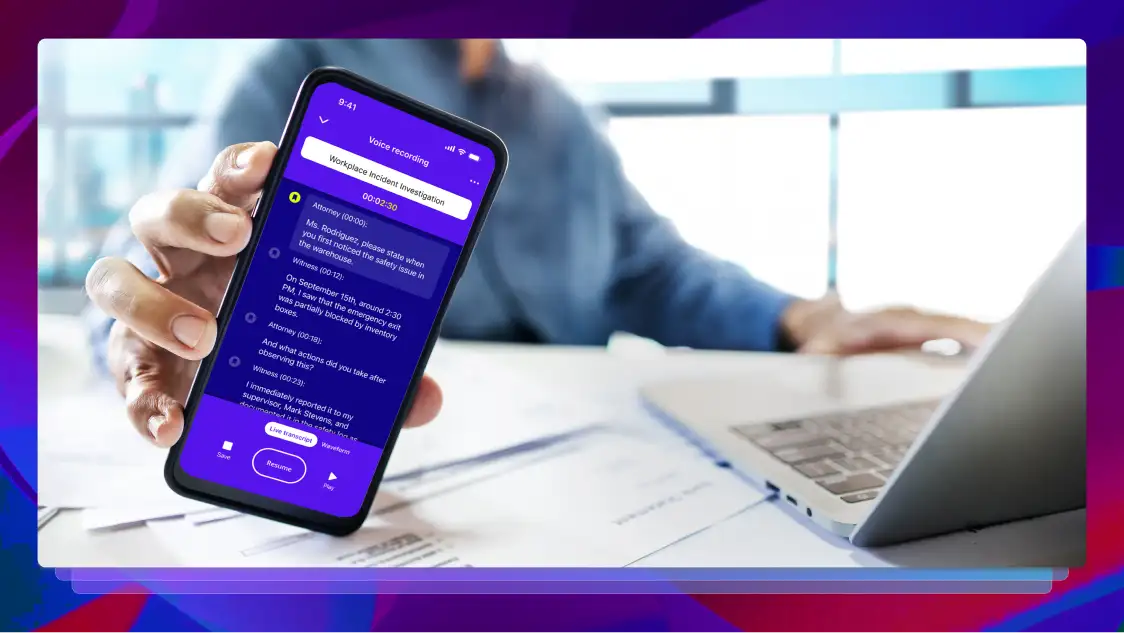3 Helpful Market Research Tactics
Market research has experienced strong growth as more marketing departments realize its positive impact on decision making and strategies.

Market research has experienced strong growth over the last five years as more marketing departments realize its positive impact on decision making and strategies. This growth is likely to continue through 2020.
However, making the most of market research requires efficiently capturing customer data and addressing customer needs. Below are three tactics you can leverage to do so more effectively in the new year.
1. Use transcripts to create a customer listening hub
A customer listening hub is a single place to organize your customer feedback. It does two things. First, it prevents harmful data silos that often occur when market research results are stored in multiple places. Second, it provides visibility to key customer data with whoever has access — generally your marketing department.
Research teams can use a customer listening hub to:
- Store all data results and analysis such as focus group results and responses to interview questions.
- Provide access to market research across departments to view and download.
- Track any updates or additions to market research over time.
One way to effectively create a customer listening hub is through the use of transcriptions. With transcriptions, research teams can record their research studies via audio or video. They can then transcribe these mediums and store them in one place to create a hub. A tool like Dropbox makes the perfect hub for transcriptions as files can be uploaded and accessed by any team member.
Rev offers an easy way to transfer transcriptions to your customer listening hub. Rev Enterprise integrates directly with Dropbox. After transcripts are created through Rev, they are stored within Rev’s platform, but can easily be moved onto Dropbox where researchers, no matter their team, can pull and analyze the findings.
For example, after a focus group interview is recorded, the saved file is uploaded to Rev. The final transcript then uploads to Dropbox where team members can refer back to data analysis and results. And it’s not just Dropbox — Rev integrates with lots of different tools so research teams can create custom workflows to create a hub.
With your transcriptions all in one location, you keep your finger on the pulse of what customers are saying and update marketing strategies accordingly.
Related Resource: How to Use Transcripts to Build a Customer Intelligence Hub
2. Leverage qualitative information with transcripts
Qualitative research is a descriptive approach to market research. For example, rather than selecting from multiple choice answers on a survey, qualitative data comes from interviewing someone about their opinion on a topic. In addition to interviews, other qualitative research methods include asking open-ended questions to focus groups and observing situations.
While this less structured method of data collection offers a better understanding of the thoughts and reasons behind a topic, qualitative data is typically harder to analyze than quantitative. Quantitative research is based on numbers whereas qualitative research is based on descriptions. You have to sift through opinions instead of hard facts.
This is where transcribing qualitative data becomes essential. Transcription:
- Makes it easier to pull qualitative insights from interviews.
- Gives you a written record of your research, which is more searchable than audio.
- Allows you to find facts faster via timestamp.
- Keeps your research accurate as you can refer to an exact transcript of interview questions and answers rather than listening to audio over and over to get the right word. (Although it is possible to pull insights from qualitative research manually, you risk missing key points or writing down a participant’s opinion incorrectly.)
Optimize your qualitative info by transcribing interviews and observations with a tool like Rev. Transcription involves simply uploading an audio or video file within the platform. The software transcribes the file, and you receive an email when the transcribed text is ready for download. It’s a process that’s easy, quick, and cost effective.
In addition, with Rev’s fast turnaround time, transcripts are ready in a few hours. As research teams build out their schedules, they can estimate more accurate timelines so that projects stay on track.
With your Rev transcriptions in hand, you can easily analyze the qualitative data. First, read through the transcript. Look for common themes and ideas. Next, annotate the transcript (i.e. label relevant words, phrases, sentences, or sections with codes). You can then group these codes into categories and subcategories. Segment your categories by labeling and describing their connections. Finally, analyze these segments and turn your findings into compelling content about your customers’ behaviors and needs.
3. Conduct global customer research with videos and subtitles
Whereas customers were once local or even national, they’re now spread out all over the world. These customers each have their own cultures, brand preferences, and buying behaviors. American and Spanish customers will likely respond differently to the same marketing. Now, more than ever, your market research team should conduct global customer research to understand different populations.
Similar to local customer research, global customer research involves conducting interviews, surveys, and focus groups. The difference is typically language and distance from participants. Videos make it easier to conduct global customer research. Whereas videos were once limited by geography, the reach of technology now means you can conduct research via video across the globe — without having to leave your office.
Typically recorded by market research teams (through online video software, for example), videos allow you to interview and interact with participants no matter where you are in the world. You can optimize videos even more with subtitles. Simply place subtitles on the interview recordings so everyone on your market research team, no matter what language they speak, can understand and use the global customer insights.
Your research team should consider video and subtitles for global customer research to:
- Expand your data bank by working with global audiences (and teams).
- Overcome the language barrier that’s an issue for other types of market research (e.g. in-person interviews).
- Simplify collaboration across international teams with subtitles placed on recordings.
So how should you get started? To record videos of research participants in different parts of the world, use tools like Calendly and Zoom to organize, conduct, and record interviews, even across different time zones and geographical areas.
And, to make the process more efficient, Rev gives research teams the ability to create subtitled videos and translated documents. Videos (whether shared internally or with customers) can have subtitles added starting at $6.49 per video minute per language. There are 15 language options so any team member can understand the content. Plus, if you have multiple participants on the video, you can use timestamps to easily find and analyze their comments.
In addition, international research teams can have documents translated into one of 35+ languages. For example, let’s say that you conduct customer research via video and create a document summarizing the responses in English. However, you want to share the info with your team in Spain. Submit the document to Rev where a highly trained professional translator will translate the document into the target language.
Use a combination of marketing research tactics
By implementing the above tactics to perform market research, your insights about customers will be easier to parse through and will set your marketing strategies up for success. The more efficient your market research approach, the more competitive your department and company will be in 2020.
Use a tool like Rev to save time and produce more accurate results through market research this year. Contact us today to learn more.
Subscribe to The Rev Blog
Sign up to get Rev content delivered straight to your inbox.




